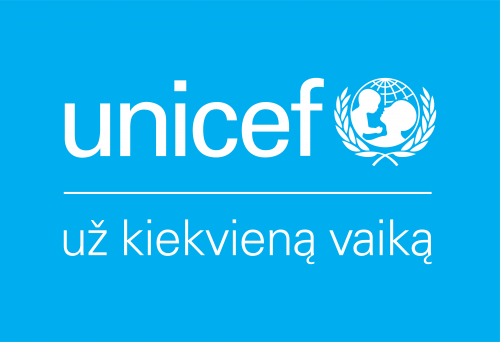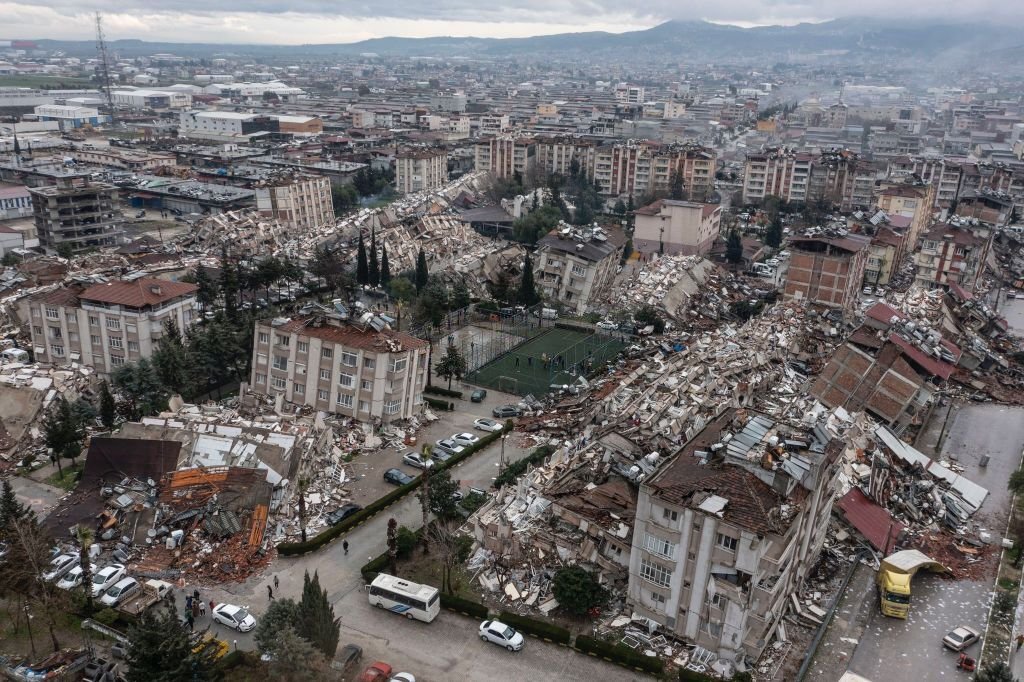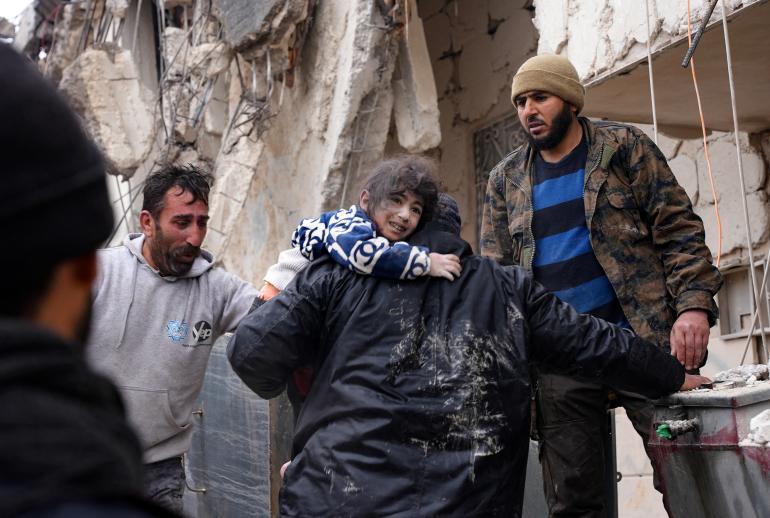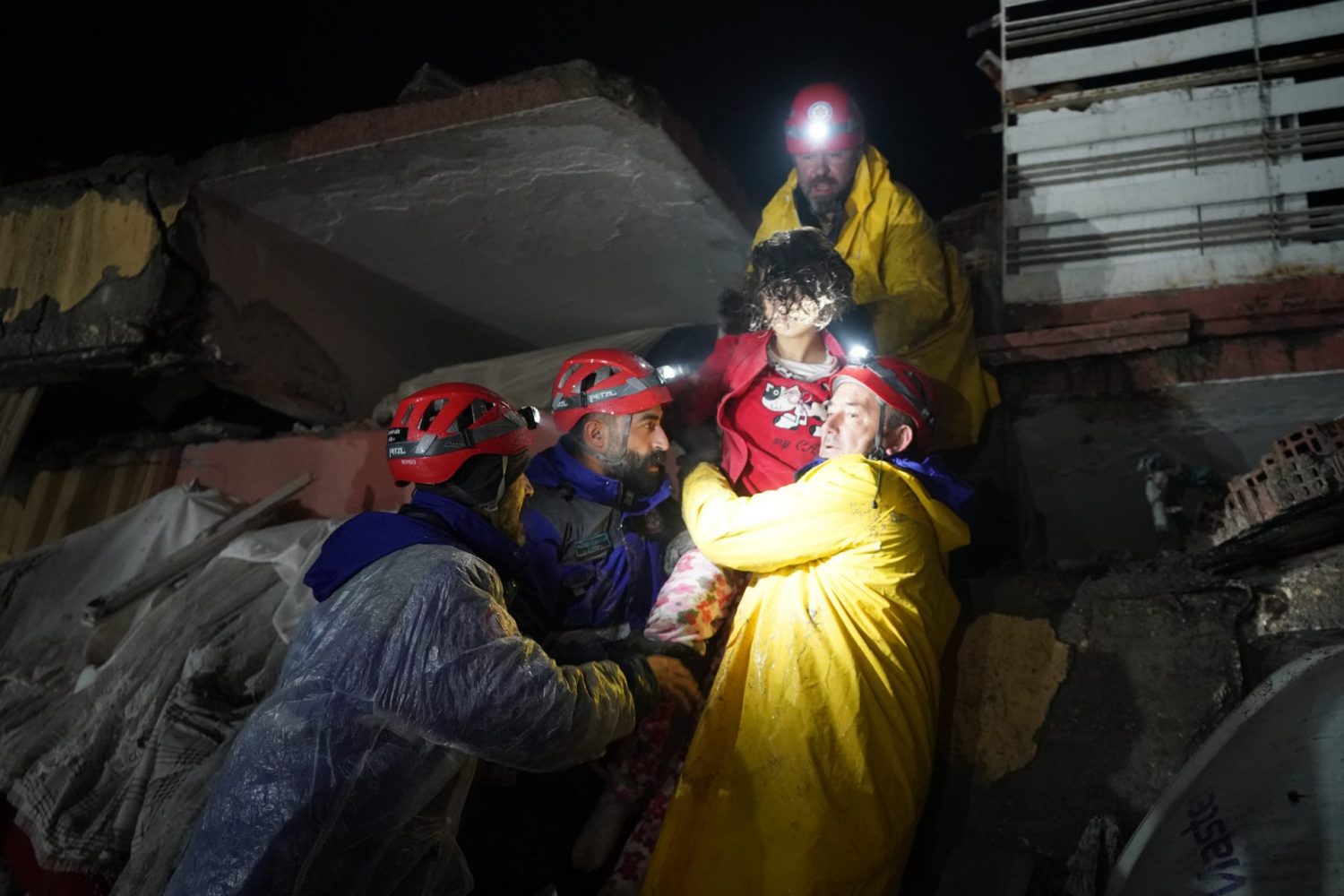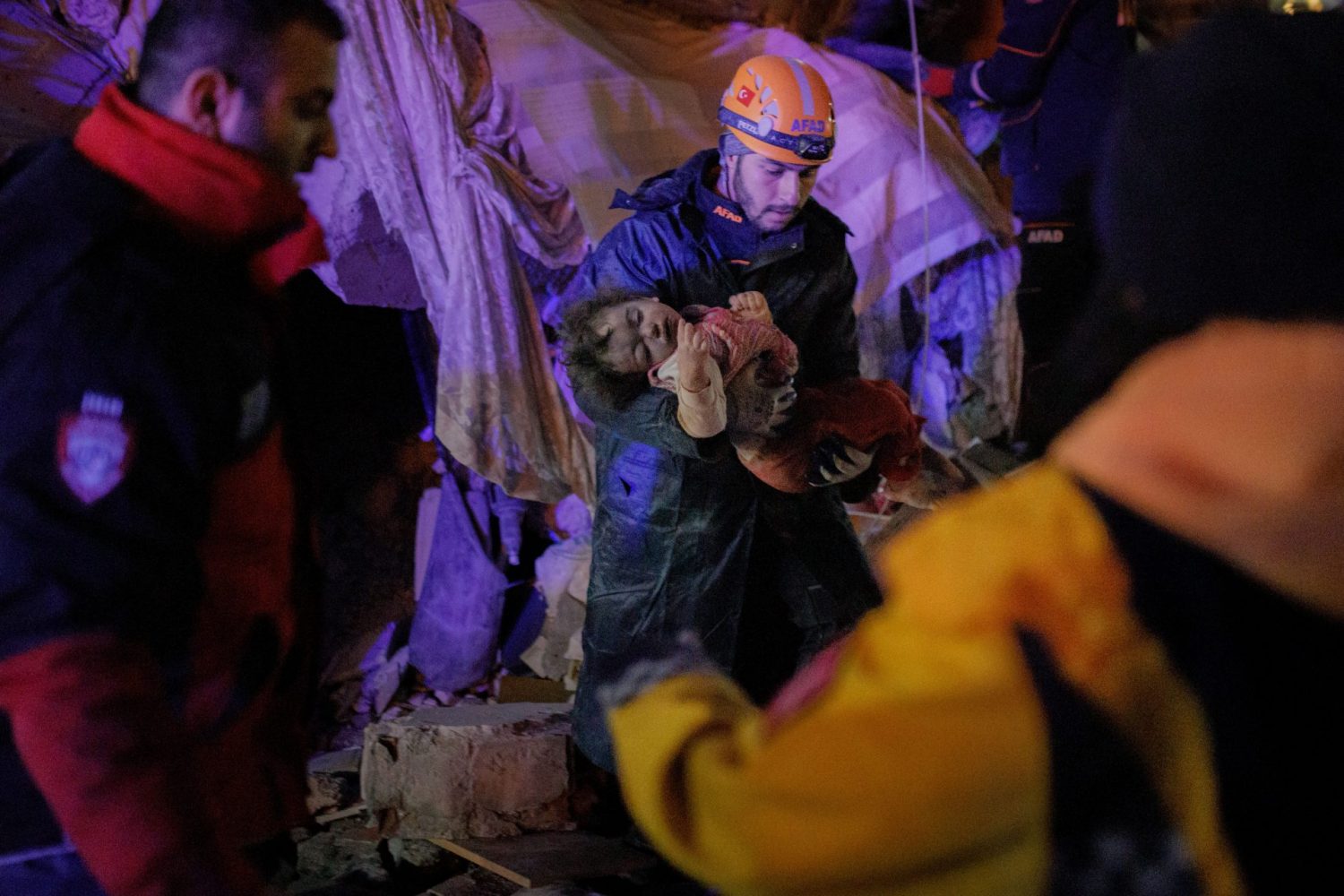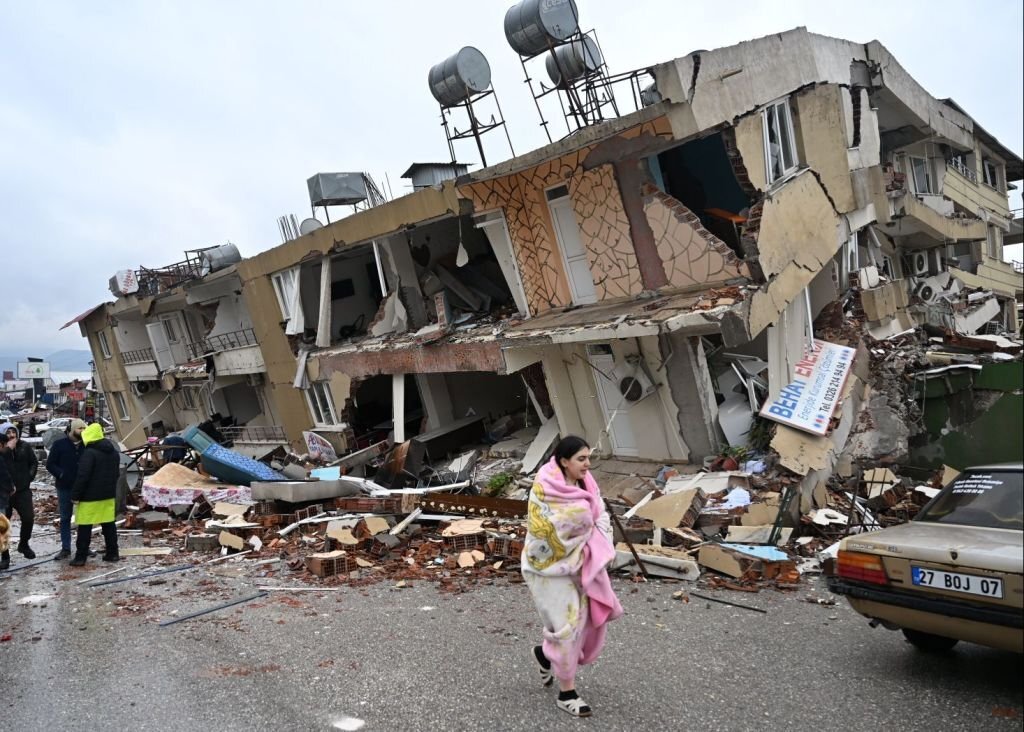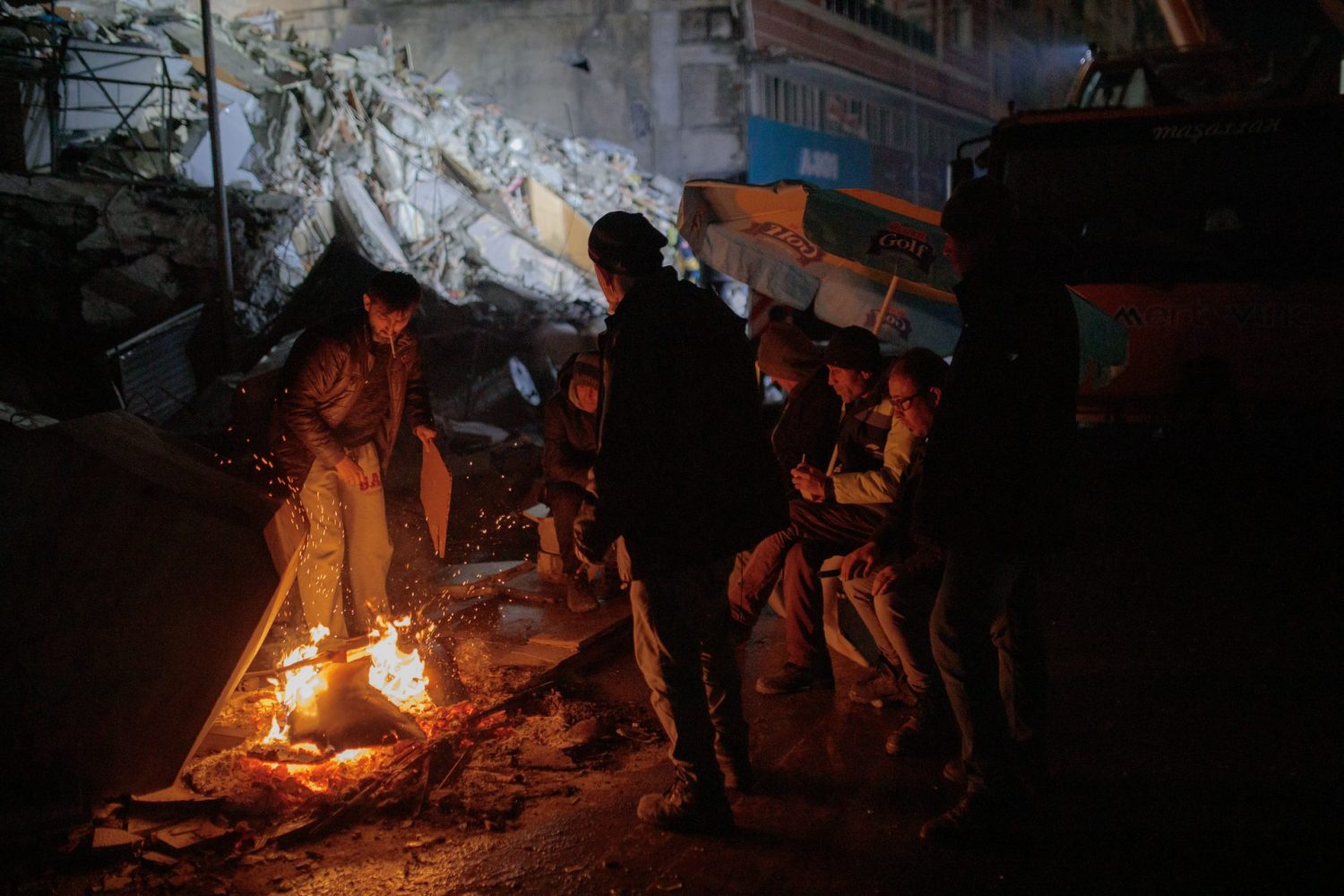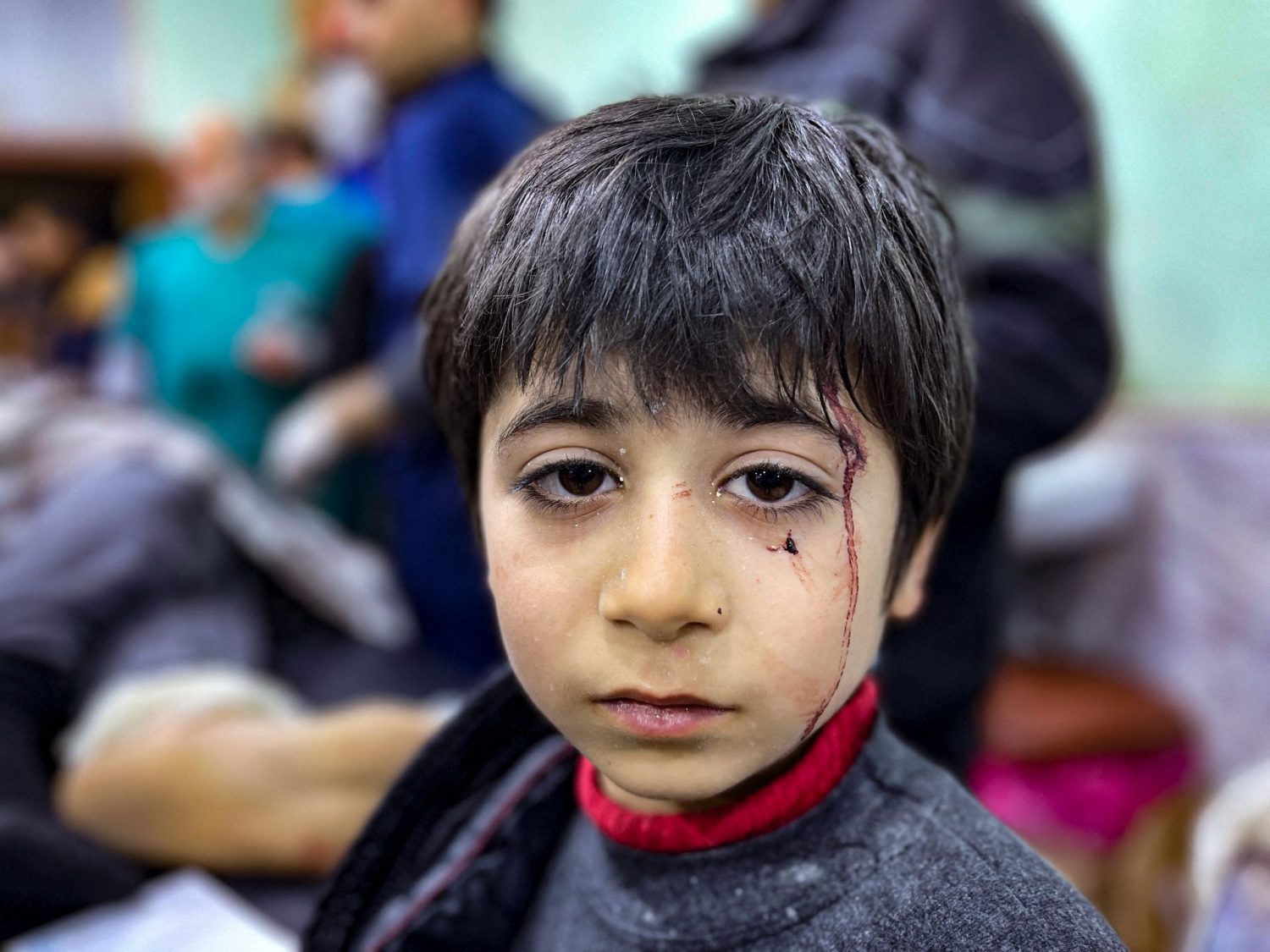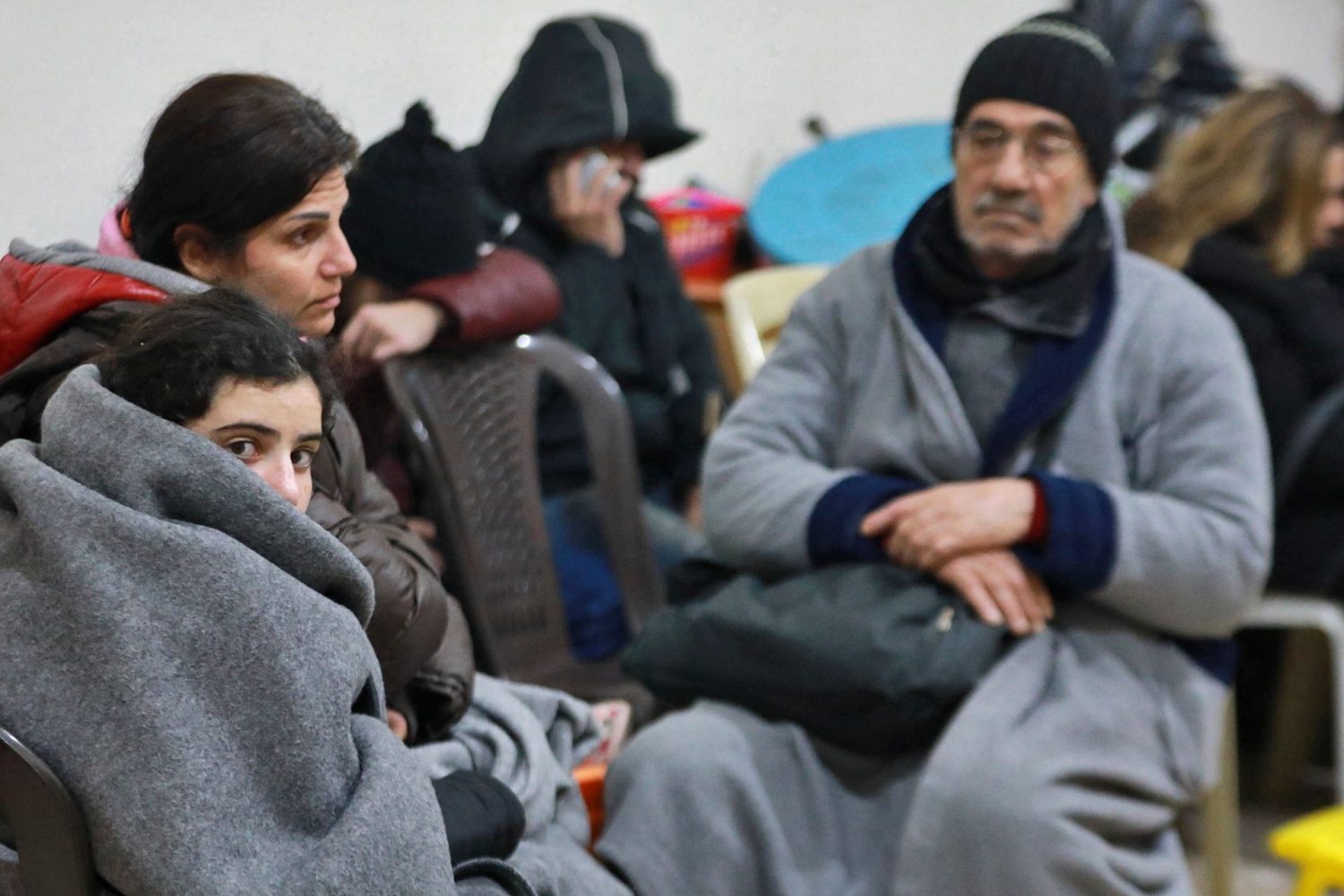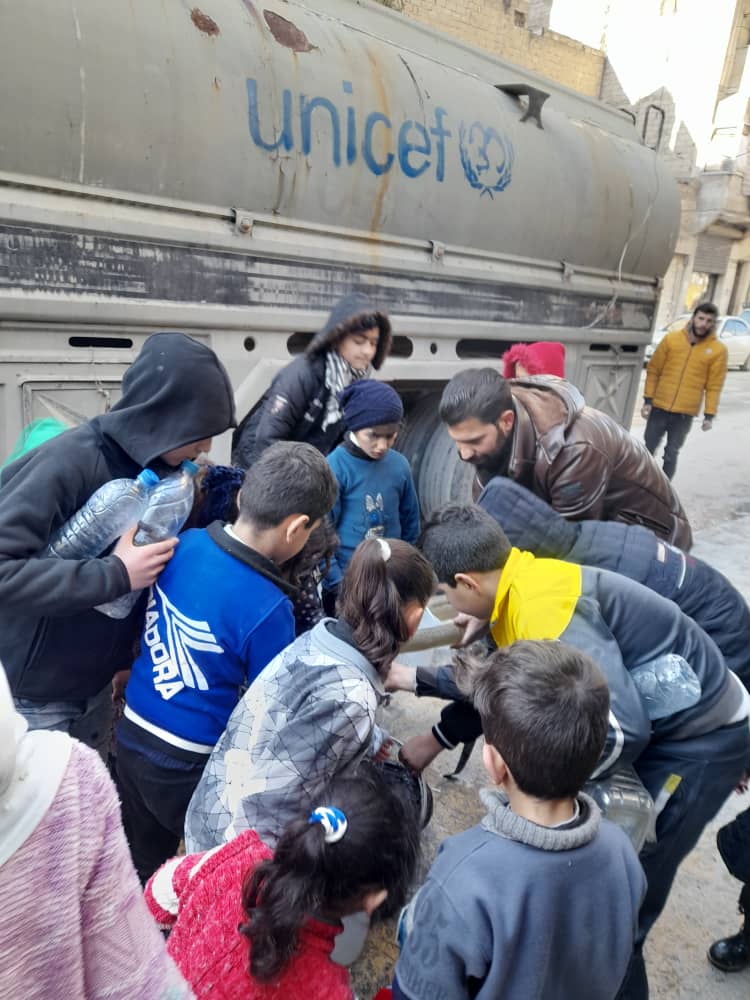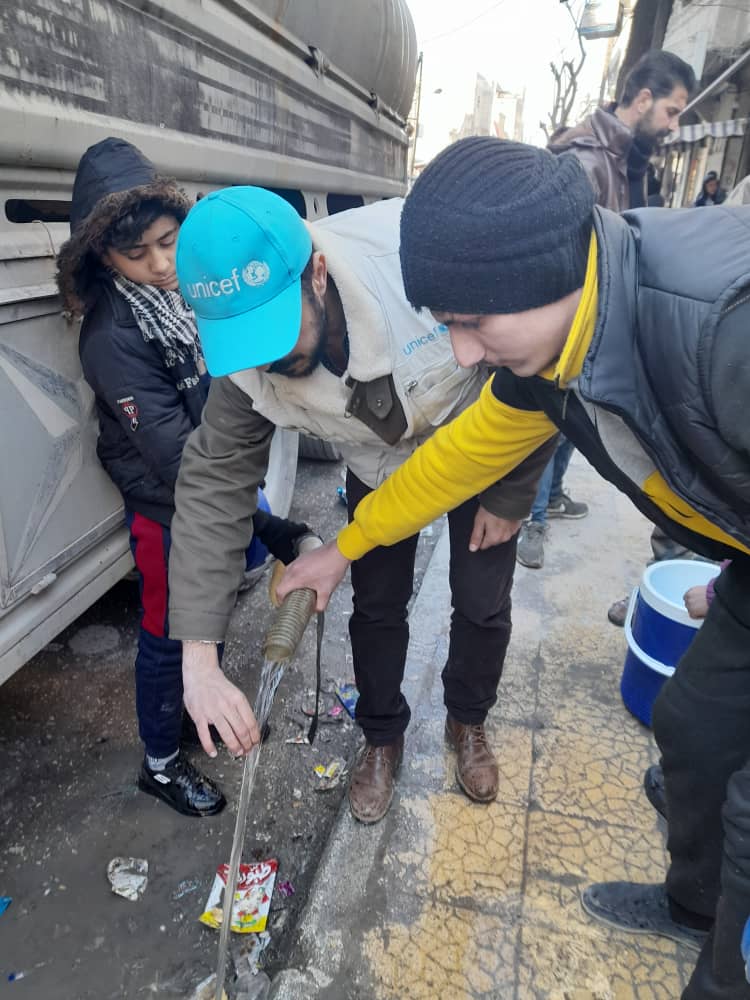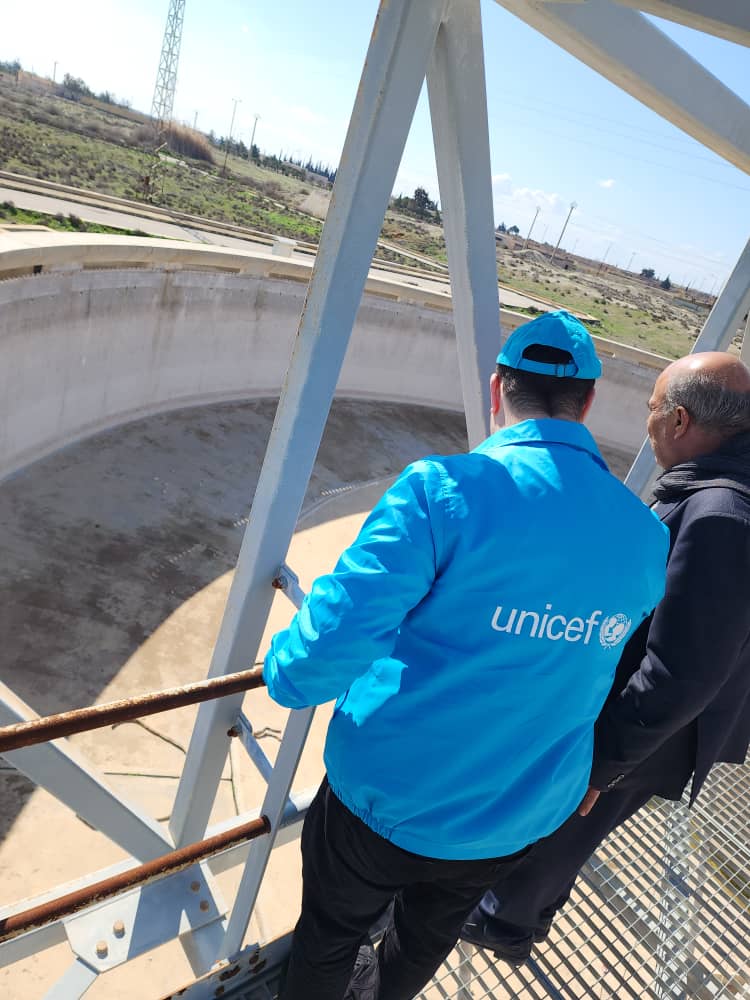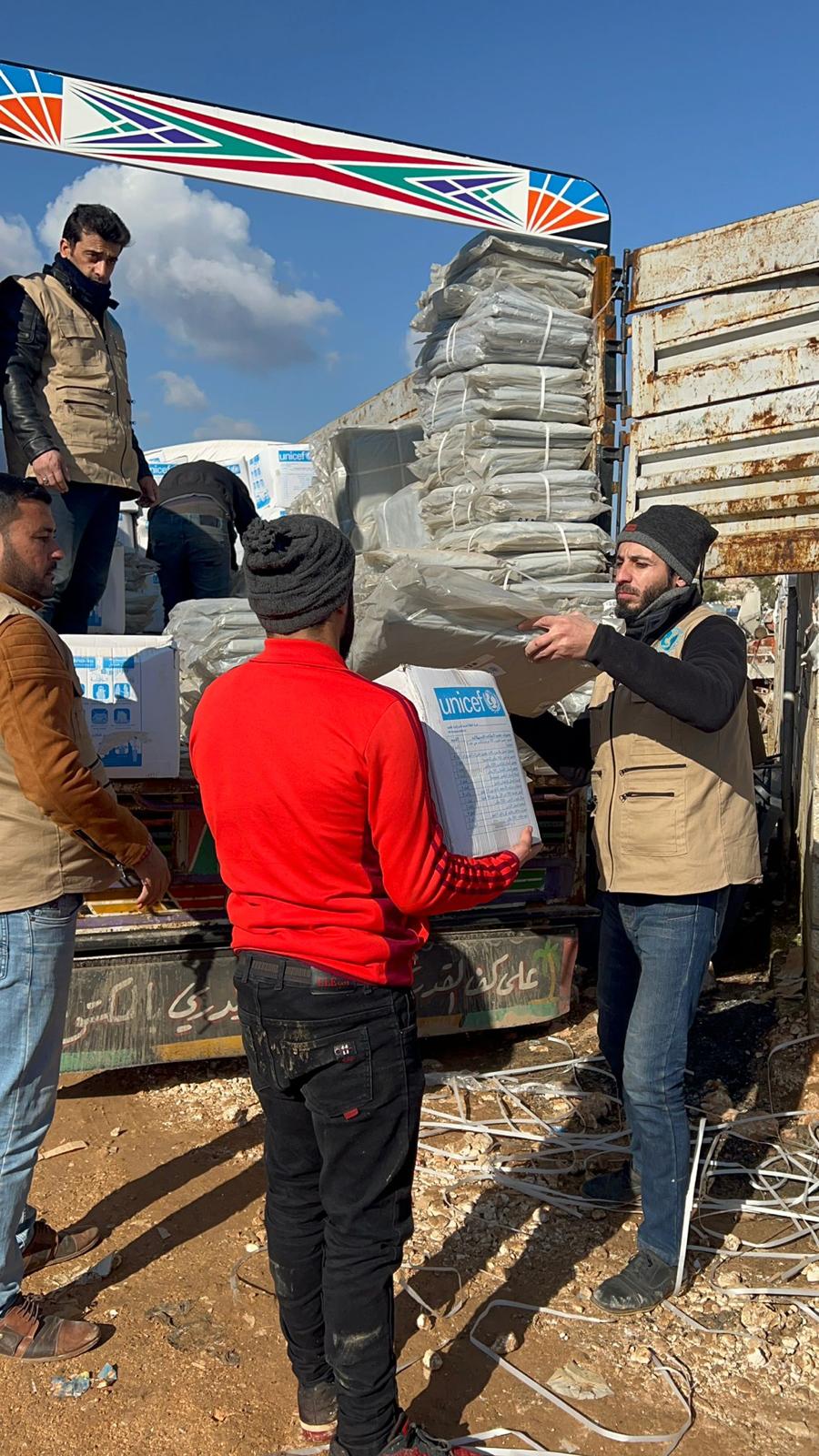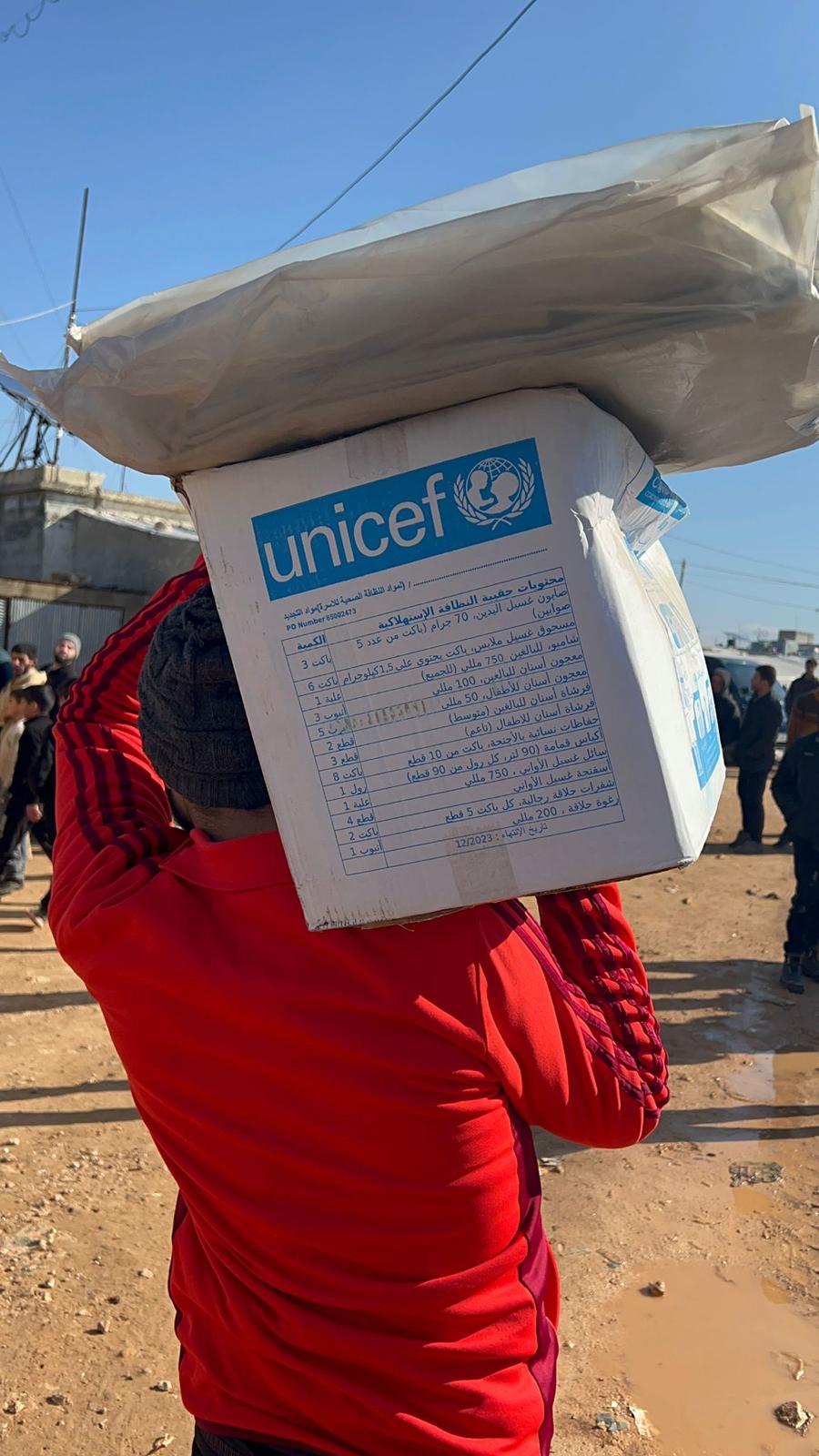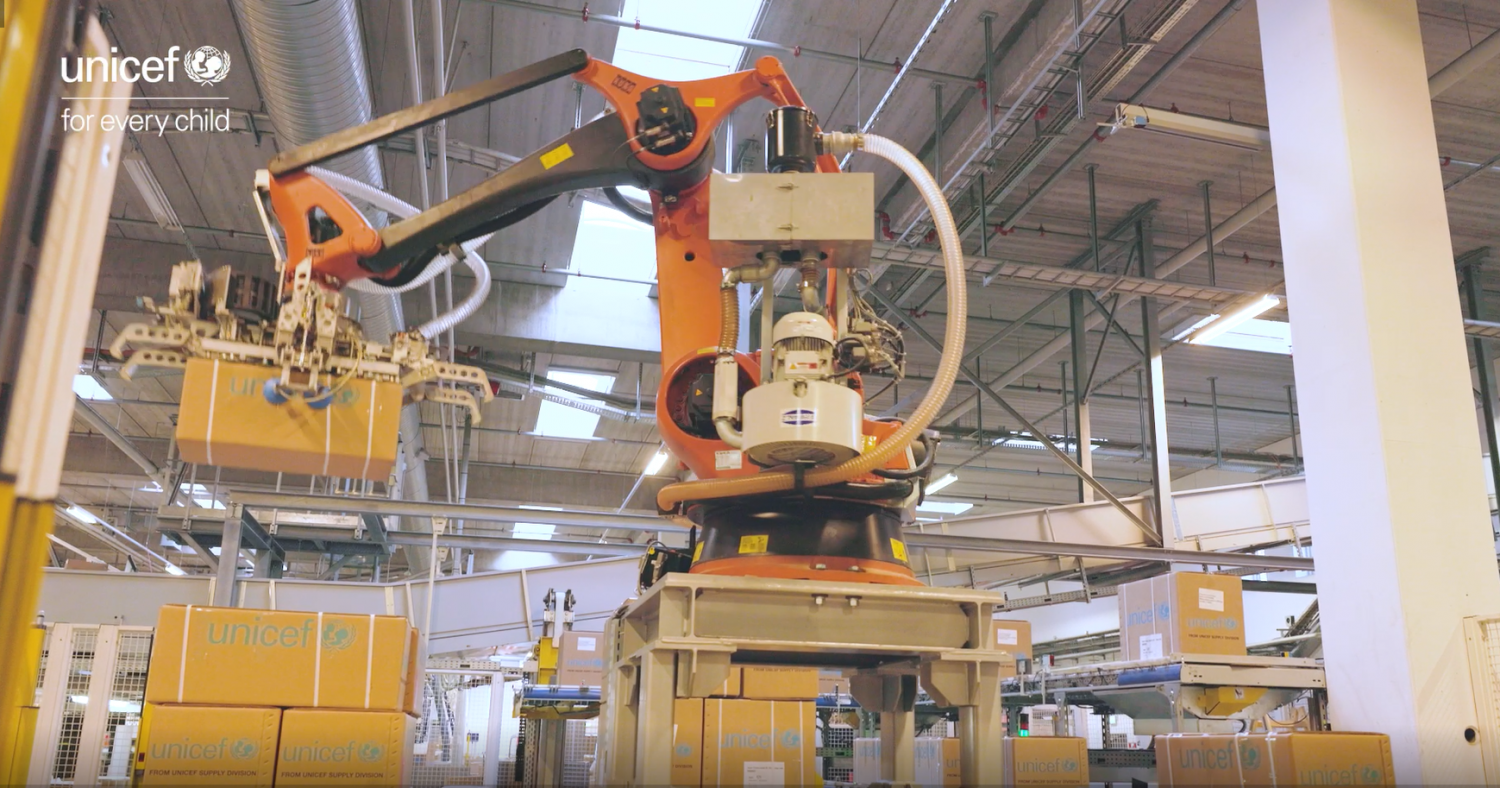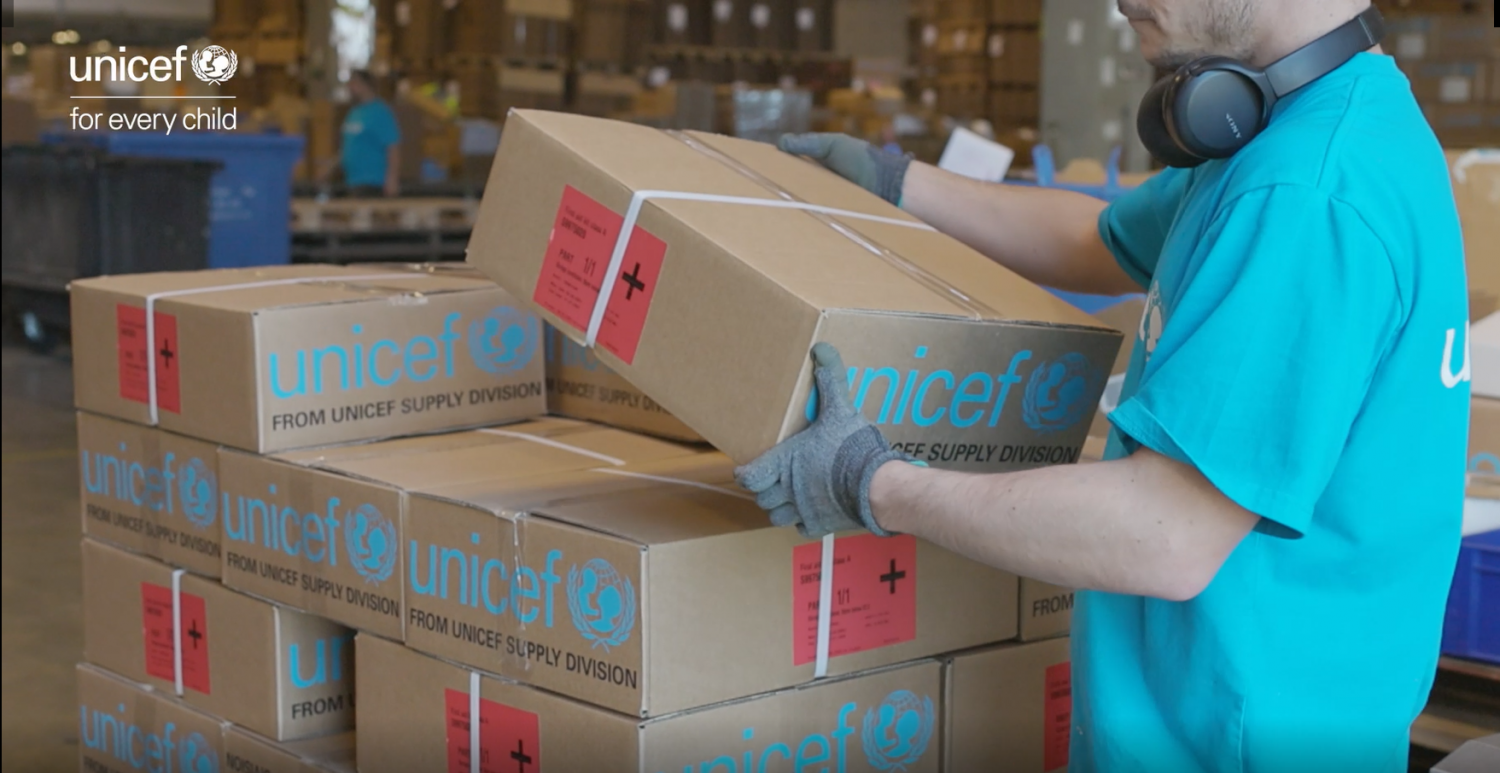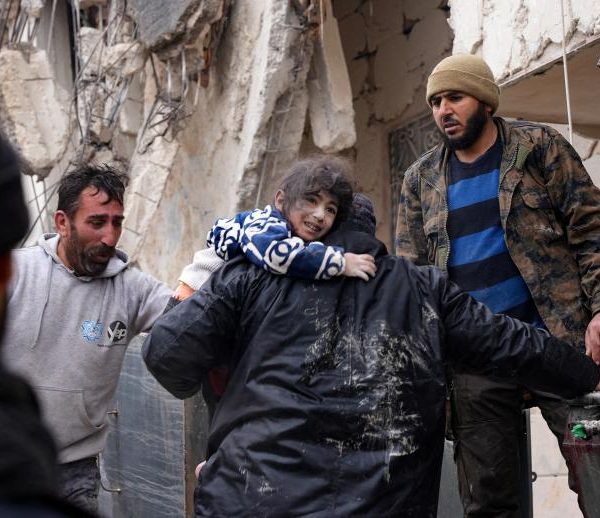Padėkite
Turkijos ir Sirijos
vaikams
2023 m. vasario 6 d. pietryčių Turkiją ir Siriją sukrėtė du pražūtingiems žemės drebėjimai, juos sekė šimtai pakartotinių smūgių, tūkstančiai vaikų ir šeimų atsidūrė pavojuje. Abiejose šalyse žuvo daugiau kaip 41 tūkst. žmonių, įskaitant vaikus, dar daugiau sužeistų, aukų skaičius tebeauga kasdien.
Pirmasis 7,7 balo stiprumo žemės drebėjimas įvyko po 4 val. vietos laiku, kai daugelis vaikų ir šeimų miegojo namuose, tą pačią dieną įvyko antrasis 7,5 balo stiprumo drebėjimas, požeminiai smūgiai kartojosi daug kartų. Toks žemės drebėjimas regione yra didžiausiai per kone šimtmetį, nukentėjusiose teritorijose dar ir įvyko pažeidžiamiems vaikams ir šeimoms pačiu netinkamiausiu metu.
Sugriauta tūkstančiai namų, šeimos buvo priverstos palikti namus ir susidūrė su stichija temperatūrai nukrentant žemiau nulio, dažnai sningant ir lyjant. Dar neseniai smarkios pūgos siautė dalyje Sirijos ir Turkijos teritorijų, prognozuojama kad čia ir toliau laikysis minusinė temperatūra. Į Sirijos šiaurės vakarus perkeltos ir Turkijoje stichiškai susikūrusiose gyvenvietėse gyvenančios Sirijos pabėgėlių šeimos yra tarp labiausiai pažeidžiamų.
„Vaizdai iš Sirijos ir Turkijos veria širdį“, – sakė UNICEF vykdomoji direktorė Catherine Russell. „Kadangi pirmasis žemės drebėjimas įvyko anksti ryte, kai daugelis vaikų kietai miegojo, jis dar pavojingesnis, o po pirmojo drebėjimo besikartojantys smūgiai kelia nuolatinį pavojų. Mūsų širdys ir mintys yra su nukentėjusiais vaikais ir šeimomis, ypač tais, kurie neteko artimųjų arba buvo sužeisti. Mūsų neatidėliotinas prioritetas – užtikrinti, kad nukentėję vaikai ir šeimos gautų paramą, kurios jiems taip reikia.“
Per drebėjimus buvo apgadintos arba sugriautos mokyklos, ligoninės ir kitos medicinos bei švietimo įstaigos, todėl tai dar labiau veikia vaikų padėtį. Keliams ir svarbiausiai infrastruktūrai padaryta žala taip pat apsunkina paieškos ir gelbėjimo darbus bei platesnio masto humanitarinę pagalbą.
Vaikai Sirijoje vis dar susiduria su viena sudėtingiausių humanitarinių situacijų pasaulyje. Dėl gilėjančios ekonominės krizės, besitęsiančių vietinių karo veiksmų po daugiau nei dešimtmetį trunkančio žiauraus konflikto, masinio gyventojų perkėlimo ir nuniokotos viešosios infrastruktūros dviem trečdaliams gyventojų reikia pagalbos. Šalyje labai aktualus maisto trūkumas, patikimų geriamo vandens šaltinių stoka, didelis mokyklos nebaigiančių vaikų skaičius.
Vandeniu plintančios ligos yra dar viena mirtina grėsmė nukentėjusiems vaikams ir šeimoms – Sirijoje 2022 m. rugsėjo 10 d. buvo paskelbtas choleros protrūkis, liga greitai išplito po visą šalį, ypač jos pažeidžiami vaikai.
***
Paremti UNICEF pastangas teikiant pagallbą nuo žemės drebėjimo Turkijoje ir Sirijoje nukentėjusiems vaikams galite pavedimu į banko sąskaitą LT577044060000322761 (AB „SEB bankas”) arba LT867300010002449116 (AB „Swedbank“) paskirtyje nurodant „Žemės drebėjimo Turkijoje aukoms“ (Rekvizitai: pavadinimas: Jungtinių Tautų vaikų fondo (UNICEF) Lietuvos nacionalinis komitetas, kodas 191588169, adresas Gynėjų g. 14, LT-01109, Vilnius).
Taip pat aukoti galite paramos tel. numeriu 1469 – skambinant auka 3 Eur, SMS su žinute „vaikams“ – 3 Eur/mėn. Ačiū Jums.
Jūsų parama prisidės padedant vaikams Turkijoje ir Sirijoje
UNICEF skubiai mobilizuoja visas humanitarinės pagalbos priemones padėti nuo žemės drebėjimų Sirijoje ir Turkijoje nukentėjusiems vaikams ir šeimoms. Sirijoje vaikus aprūpiname geriamu vandeniu, rūpinamės vaikų saugumu ir gerove, Turkijoje dalijame gyvybiškai svarbius skubios pagalbos reikmenis, stegiame vaikams ir šeimoms saugias erdves.
Švarus vanduo ir mityba – didžiausią dėmesį skiriame tam, kad užtikrintume galimybes vaikams gauti saugaus geriamojo vandens, sanitarijos reikmenų ir pramisti. Vien Sirijoje per pastarąsias 48 val. UNICEF pristatė 400 tūkst. litrų saugaus vandens, kas labai svarbu siekiant užkirsti kelią krizės metu greitai plintančioms ligoms.
Sveikatos priežiūra ir medicinos reikmenys – nelaimės zonai tiekiame gyvybes gelbstinčius medicinos reikmenis. Švarus vandenuo drauge su namus palikti priverstų žmonių sveikatos priežiūra leis užkirsti kelią pasikartojantiems choleros protrūkiams.
Vaikų apsauga – užtikriname suaugusių nelydimų vaikų identifikavimą ir jų sugrąžinimą šeimoms. Vaikams teikiama greitoji psichologinė pagalba, saugios erdvės poilsiui ir užsiėmimams.
Švietimas – mokyklos Turkijoje ir kai kuriose Sirijos dalyse šiuo metu uždarytos, daugelyje jų laikinai apgyvendinti nukentėję vaikai ir šeimos. Kartu su partneriais dirbsime siekdami užtikrinti, kad vaikai galėtų grįžti į klases, kai tik bus saugu.
Prašome Jūsų padėti UNICEF pagelbėti nuo šio pražūtingo žemės drebėjimo nukentėjusiems vaikams ir šeimoms Turkijoje ir Sirijoje, paaukokite dabar – ačiū Jums.
